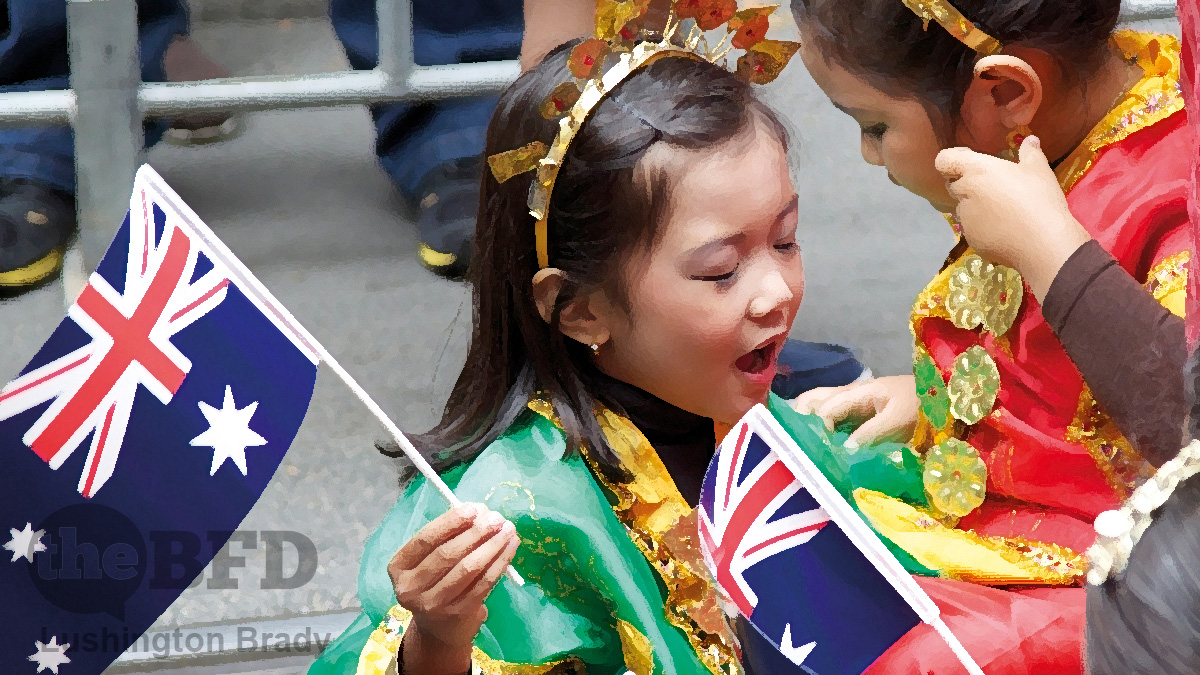When it comes to not being fooled by the media, an important principle is to never believe without evidence an article that claims “a study shows”.
There are two important reasons for not taking such a claim at face value: firstly, the media spin studies to fit their prejudices (for example an alarmist story on melting in a small region of Antarctica completely ignored the study’s caution on undersea volcanoes being a possible culprit); secondly, the press releases for studies just as often are not justified by their contents.
So always filter such stories through the lens of media bias and try to read and critically analyse the study itself.
A case in point is the Lowy Insitute’s latest report, Being Chinese in Australia.
Although the study analyses a broad range of topics, from “Australian Culture” to “Systems of Government”, the mainstream media have obsessively focused on just part of one chapter: “Experiences of Discrimination”. Naturally, the media spin is as negative and hysterical as possible.
The media could easily have reported the study’s findings thus:
“More than 80% of Chinese Australians say they have not been physically threatened or attacked in the past year. Less than one-third reported verbal abuse or discriminatory treatment. Most Chinese-Australians say there is not a lot of discrimination against people of Chinese heritage in Australia.” Reckon that would get clicks? Nah.
Yet that’s an entirely accurate representation of the report.
This is what we get from the media, instead:
Almost one in five Chinese Australians say they have been physically threatened or attacked in the past year, with most blaming tensions stemming from the COVID-19 pandemic or hostility between Canberra and Beijing.
Around one in three community members also say they have faced verbal abuse or discriminatory treatment.
But almost 70 per cent of Chinese Australians still say they feel accepted by Australian society, with almost eight in 10 saying Australia is a good place to live.
In fact, Chinese Australians have some pretty positive things to say about Australia.
Sydney mother Ping Hua, who’s lived in Australia for five-and-a-half years[…]said she feels “lucky” to be in Australia.
When she had a serious car accident while living in Canberra she was impressed by the care she received in hospital, and from health workers sent to her home.
She was also delighted by the way her neighbours and other members of her local community rallied to support her while she slowly recovered.
“They showed me support, they helped me to get involved in local community hobby groups … they understood I must have been bored, staying [at home] alone with crutches and a wheelchair,” she said.
“I realised that if this happened back in China in my hometown, I would probably need to hire more people for extra help, or need extra help from other family members.”
ABC Australia
Of course, this doesn’t disprove that discrimination against Chinese-Australians has undoubtedly risen in the wake of COVID-19 and the Chinese Communist Party’s attempts to bully Australia into submission. That is certainly undesirable and shows that too many people are unable to distinguish between the Chinese government and the Chinese people.
But, let’s be honest, it could be a lot, lot worse. Compared to the way minorities are often treated in other countries in times of tension, Australia is proving pretty resilient.
One might also compare the media’s stance during tensions with other countries. For instance, during the mid-90s diplomatic tensions over French nuclear testing in the Pacific, mainstream media outlets promoted anti-French billboards and encouraged members of the public to stamp on baguettes and berets.
More importantly, the media completely failed to analyse the report itself.
The methodology of the report is somewhat questionable. By its own admission, it is not based on a random sample of Chinese Australians. In fact, fewer than 200 of the more than 1,000 people polled were randomly selected. Interestingly, just 15% of the responses were in English, while 73% were in Simplified Mandarin.
A sceptical media might also have noted that one of the report’s authors previously worked for China Matters – a think tank that was stripped of Federal funding in 2020. In 2018, China Matters called for Australia to sign up to Xi Xinping’s notorious Belt and Road Initiative. The think-tank denied that it was pro-Beijing.
This doesn’t necessarily disprove the report, but, as we see, media are only interested in spinning a narrative and not in critically analysing the material they’re spoon-fed by lobby groups.
Remember: Whatever a patron wants published is advertising.
Please share this article so that others can discover The BFD

